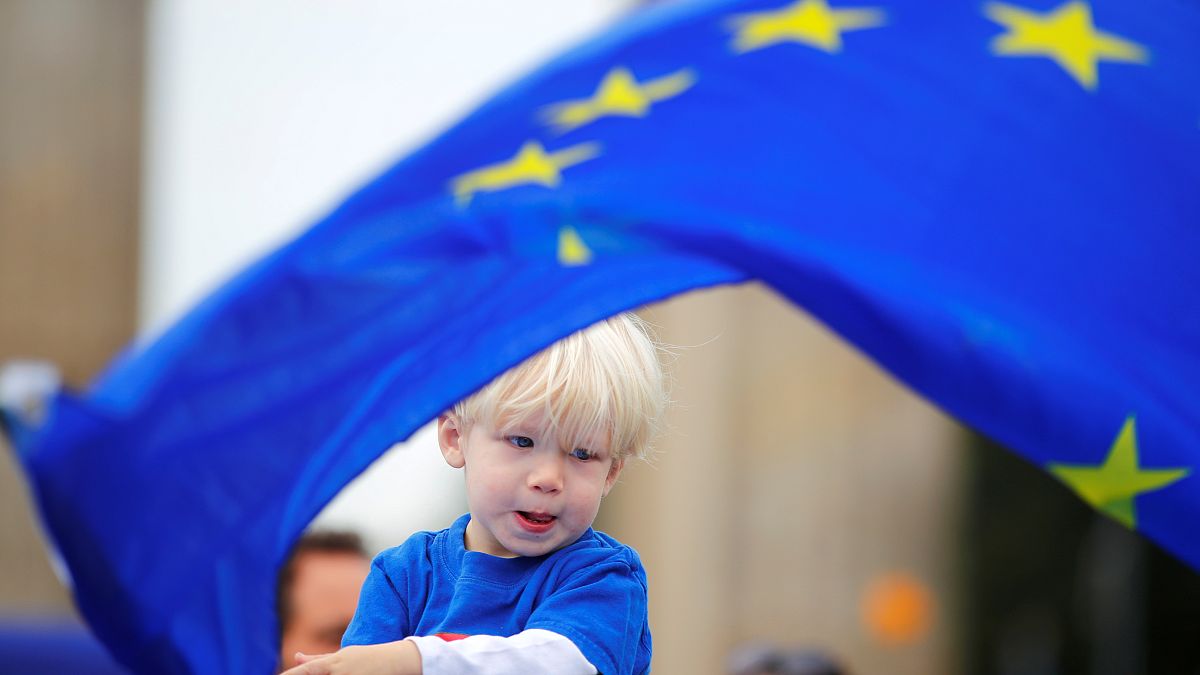The EU should be "avoiding fights that are not of its making but standing up to other continent-sized powers and tackling crises that affect its interest," a ECFR poll of 40,000 Europeans has found.
The European Union needs to be more independent and exert greater power on the international stage and avoid being dragged into conflicts between other world powers, a major new survey of European voters has found.
Some 40,000 people from 14 EU member states — Austria, Czechia, Denmark, France, Germany, Greece, Hungary, Italy, Netherlands, Poland, Romania, Slovakia, Spain and Sweden — took part in the poll from the European Council on Foreign Relations (ECFR) thinktank released on Tuesday.
It found that "the public want the EU to be a responsible actor in a dangerous world."
"For them, the bloc should chart its own course between other actors in a highly competitive, multipolar environment, avoiding fights that are not of its making but standing up to other continent-sized powers and tackling crises that affect its interest," it added.
Russia, China
Overall, respondents of the poll placed more trust in the EU than in their national governments to protect their interests against other global powers, but they also indicated that they would prefer the bloc becomes "a strong, independent, non-confrontational actor that is powerful enough to avoid taking sides or being at the mercy of outside powers."
When asked about conflicts between the US and either Russia and China, most respondents said the EU should remain neutral.
Still, significant proportions of voters believe Russia is attempting to destabilise political structures in Europe and that their governments are inadequately protecting their country against foreign interference.
Additionally, less than 20% of voters in each member state also feel that their country's interests are well protected from aggressive Chinese competitive practices but, in this case, most respondents in every country surveyed except France and Romania said their own national governments should represent their country's interests in trade negotiations over the EU.
On Iran, respondents overwhelmingly support the bloc's attempt to keep the nuclear deal alive.
Enlargement
Closer to home, most of those surveyed were not enthused about further EU enlargement with more than 40% of respondents in member states that are net contributors to the EU budget such as Austria, France, Germany, Italy and the Netherlands opposing the addition of more countries from the Western Balkans.
Stress and fear experienced by Europeans were found to stem from their perception of security threats. One-third of EU citizens believe, for instance, that conflict between member states is possible and in every member state bar Spain, more than 40% of them believe that the bloc could fall part within the next two decades which would result in Europe being even less likely to counter superpowers like the US.
Climate change, migration
Climate change and migration were also found to be major causes of insecurity.
On climate change, more than half the public in each country surveyed – aside from the Netherlands – thought the issue should be prioritised over most other issues.
To tackle the migration crisis — which most respondents viewed as resulting from conflicts — European voters backed greater efforts to police the bloc's external borders and boosting economic aid to developing countries.
According to the ECFR, the poll's results show that Europeans recognise that their interests are largely aligned with each other and that foreign policy is actually one of the area in which there is a growing sense that action at the EU level, rather than at the national level, is the answer.
But it warned that "given their fears about Europe's place in the world, voters will not tolerate indifference to their concerns about foreign policy any more than they will in other areas.
"The new leadership of the EU's institutions now needs to take brave decision and accept — as voters have — that the world has changed," it added.
